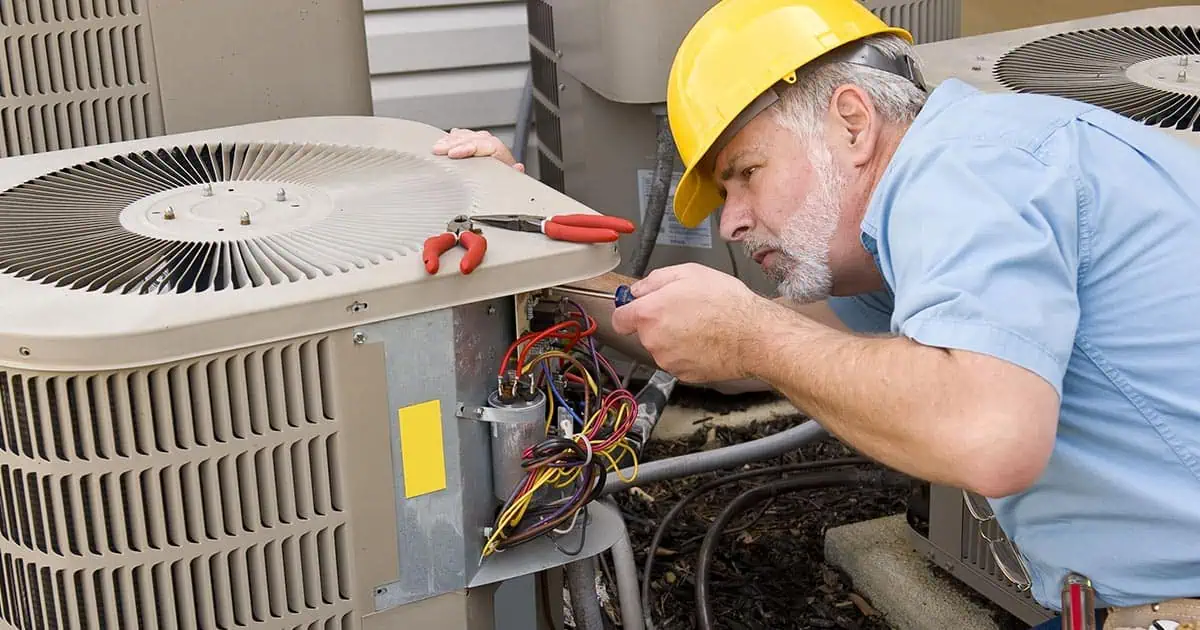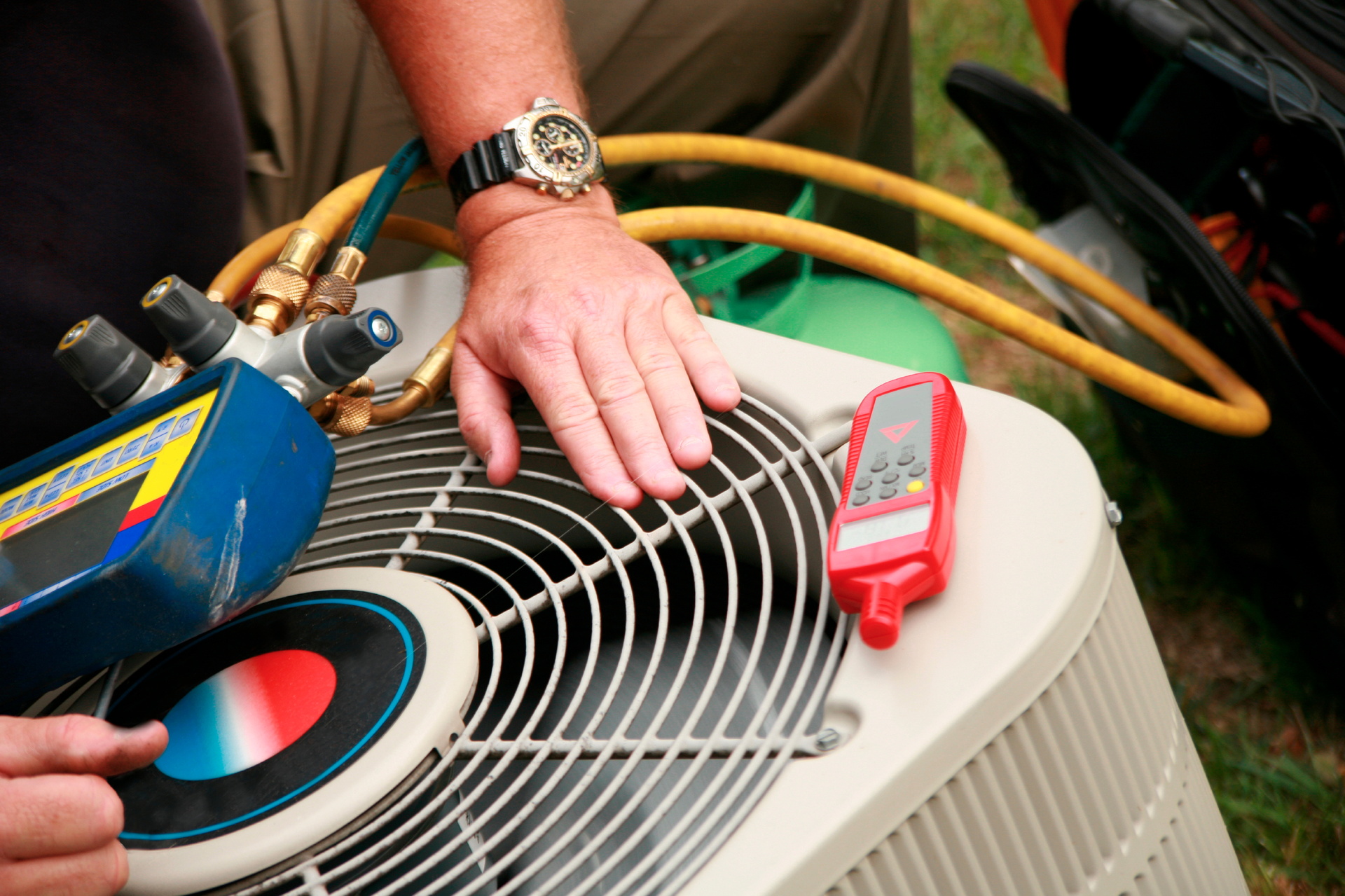The Essential Homeowner’s Guide to AC Unit Replacement
Maximize Your Comfort: The Ultimate Guide to A/c Unit Repair Work and Upkeep
Comprehending the intricacies of air conditioning unit fixing and maintenance is crucial for each home owner aiming to assure consistent convenience in their space. This overview explores essential upkeep tasks and common concerns that may develop, highlighting the significance of aggressive care. By familiarizing yourself with your system's elements and acknowledging when specialist assistance is needed, you can expand the life of your a/c unit. As the periods change, the strategies for maximizing effectiveness and comfort end up being specifically important-- find exactly how to approach this considerable aspect of home monitoring effectively.
Understanding Your Ac System

The evaporator soaks up warmth from the indoor atmosphere, triggering the cooling agent to evaporate and cool down the air. The compressor then pumps this low-pressure gas to the condenser, where it is changed back into a liquid state by releasing the taken in warmth to the outside. The growth valve regulates the circulation of cooling agent into the evaporator, making certain optimal cooling performance.
Recognizing these components helps identify potential issues, such as refrigerant leaks or compressor failings, which can greatly influence your a/c's efficiency. Additionally, recognition of the air flow and filtering systems is necessary, as clean filters and unobstructed ducts are essential for effective operation. By extensively understanding how your a/c system works, you can make more informed decisions concerning maintenance and fixings, inevitably lengthening the life of your device and enhancing interior convenience.
Crucial Maintenance Tasks
Normal maintenance is vital for guaranteeing the ideal efficiency and durability of your air conditioning system. By executing a constant maintenance schedule, home owners can protect against prospective concerns and boost the efficiency of their units.
One of one of the most vital jobs is to regularly replace or clean the air filters. Clogged up filters restrict airflow and can bring about system pressure. It is a good idea to check filters monthly and change or cleanse them every 1-3 months, relying on usage.
In addition, keeping the exterior system is vital. Verify that the area around the condenser is free from debris such as leaves, dirt, and lawn clippings. This promotes proper air flow and cooling down efficiency.
Monitoring and cleaning up the evaporator and condenser coils is one more vital task. Dirty coils can prevent warmth exchange, causing the system to work more difficult. Routine cleansing of these components will ensure optimum performance.
Identifying Common Issues
Recognizing just how to acknowledge typical issues with your cooling system is necessary for keeping its effectiveness and protecting against expensive repairs. Among one of the most constant issues is inadequate air conditioning. If your air conditioner device struggles to preserve the wanted temperature level, it may result from a dirty air filter, reduced refrigerant levels, or malfunctioning elements.
Another common concern is uncommon sounds. Appears such as grinding, rattling, or hissing can suggest mechanical failings or loose components that need prompt interest. Furthermore, if you observe a considerable boost in power bills without a matching adjustment in use, this might signify inadequacy, often linked to dirty coils or age-related wear.
Leaking water is likewise a common concern, which can suggest a clogged up drainpipe line or a cooling agent leak. Ignoring water leakages may cause considerable damages, including mold development or structural issues. A consistent undesirable smell can suggest electrical issues or mold within the system. By being vigilant and acknowledging these common concerns early, you can assure your a/c system runs successfully, prolonging its life expectancy and improving your convenience.
Do It Yourself Repair Service Techniques
Recognizing common a/c concerns is essential for effective DIY repair work. Equipped with standard fixing devices, homeowners can attend to minor troubles and keep peak efficiency. This section will outline essential strategies to repair and settle typical air conditioner breakdowns.
Typical AC Problems
A/c unit, necessary for maintaining comfort in blistering warmth, can experience a variety of common issues that may interrupt their effectiveness. One constant problem is poor air conditioning, frequently caused by a dirty air filter or blocked ducts. Frequently inspecting and replacing the filter can greatly improve air movement and cooling down efficiency.

One more common issue is the air conditioning unit not turning on, which might arise from a tripped breaker or a damaged thermostat. Verify the thermostat is established correctly, and reset the breaker if necessary.
In addition, unusual noises such as rattling or grinding can show loosened components or particles in the device - AC Unit Replacement. Examining the exterior for obstructions and tightening up any loosened screws can typically solve these audios
Refrigerant leaks are one more major issue, influencing both performance and safety. If you see ice forming on the coils or a decrease in cooling down power, it may signal a refrigerant concern that requires expert attention.
Lastly, water pooling around the device can indicate a clogged drain line. Routine maintenance of the drainpipe line can prevent water damages and assurance height efficiency. Attending to these typical air conditioning concerns promptly can improve the long life and efficiency of your system.
Basic Repair Work Equipments
Appropriate upkeep and timely repair services can considerably extend the life of your a/c system. To effectively take care of standard repair work, it is vital to outfit on your own with the right tools. A click well-stocked toolkit can equip you to resolve common concerns and execute routine upkeep tasks efficiently.
Firstly, a collection of screwdrivers, including both Phillips and flathead types, is essential for accessing different elements. Pliers and cable cutters are additionally necessary for adjusting wires and safeguarding links. A multimeter is invaluable for detecting electric issues, permitting you to measure voltage, present, and resistance safely.
Furthermore, a vacuum or shop vac can aid eliminate dust and debris from filters and coils, making certain peak air movement. A refrigerant scale collection is necessary for inspecting cooling agent degrees and identifying prospective leaks. Do not fail to remember safety goggles and handwear covers to shield on your own during repairs.
A level can be beneficial for making certain correct installation of the device, while a flashlight aids visibility in dark locations. By using these basic repair work devices, you can take on small problems with self-confidence and keep your air conditioning unit's efficiency and longevity.
When to Call a Specialist
Recognizing the signs that suggest the requirement for specialist treatment is crucial for keeping the effectiveness and long life of your air conditioning system. One of the key signs is inconsistent cooling. If certain locations of your home stay warm while others are pleasantly awesome, it might recommend cooling agent concerns or ductwork issues that need experienced evaluation.
One more vital sign is unusual sounds, such as grinding, screeching, or rattling. These sounds can represent mechanical failing or loosened elements that necessitate immediate focus. In addition, if you notice a rise in energy costs without an equivalent modification in usage, it might indicate that your unit is working more challenging than needed because of underlying problems.
Constant cycling on and off, called short-cycling, can likewise be a signal that the system is struggling and might require an expert's competence. Finally, the existence of water merging around your system or extreme wetness can show an obstruction or a cooling agent leakage, both of which need to be addressed by a qualified professional. Disregarding these indication can lead to more significant problems and costly repairs, making timely professional treatment important.
Seasonal Preparation Tips
As the periods change, preparing your a/c system for the upcoming demands is vital to guarantee peak performance. Begin by scheduling an expert inspection to analyze the general problem of your device. Specialists can identify possible problems prior to they rise, making certain your system operates smoothly throughout the warmer months.

Inspect the ductwork for any kind of leaks or clogs, as these can significantly influence the system's performance (AC Unit Replacement). Sealing any gaps will improve air movement and enhance convenience levels in your house. Validate that the thermostat is working appropriately, as this will aid maintain the desired temperature level without overworking the system.
Take into consideration inspecting the refrigerant levels. Low refrigerant can indicate leakages and impact cooling efficiency. By following these seasonal preparation pointers, you can improve your a/c system's reliability and performance, making certain comfort when it is required most.
Energy Effectiveness Practices
Executing energy effectiveness methods in your a/c system can significantly lower energy costs while boosting comfort levels. One of one of the most reliable approaches is routine maintenance, that includes cleaning or changing filters, examining refrigerant levels, and making sure that coils are clean. These actions permit your system to run at peak performance.
Making use of a programmable thermostat can better maximize energy use by allowing you to set temperature levels based on your schedule, decreasing power usage when you are away. In addition, securing any air ducts and guaranteeing proper insulation can prevent cooled air from getting away, causing lower energy use.
Choosing an energy-efficient design when it's time for replacement is additionally important. Seek systems with the power celebrity label, which indicates conformity with stringent power efficiency standards.
Regularly Asked Inquiries
Just how Frequently Should I Replace My Air Filter?
Air filters need to generally be changed each to three months, depending on use and environmental variables (Air Conditioner Repair). Routine substitute assurances suitable air top quality and system effectiveness, minimizing stress on the cooling device and decreasing power costs
What Dimension A/c Do I Required for My Home?
Identifying the appropriate air conditioner size for your home includes determining the square video, taking into consideration ceiling height, insulation high quality, and local climate. Air Conditioner Repair. An expert assessment can assure optimal efficiency and convenience for your home
Can I Utilize My A/c Unit in Winter Months?
Utilizing an ac system in winter season is generally not a good idea, as it might cause inefficiency and potential damages. Instead, consider utilizing a heater made for chillier temperatures to ensure peak efficiency and comfort.
Exactly how Do I Improve Indoor Air Quality With My AC?
To improve interior air top quality using your a/c, on a regular basis clean or change filters, warranty proper air flow, utilize air purifiers, and keep suitable moisture degrees. These techniques sustain much healthier air circulation and lessen irritants and contaminants.
What Is the Ordinary Life-span of an A/c?
The typical life-span of an air conditioning unit normally ranges from 10 to 15 years, relying on factors such as use, maintenance, and model quality. Normal servicing can extend operational effectiveness and durability considerably.